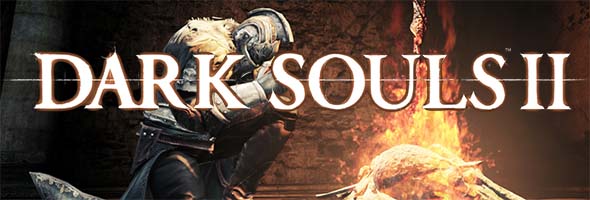
I've been trying to get myself hyped up for Dark Souls III by playing through the Scholar of the First Sin edition of Dark Souls II. I made myself a knight character as well as a sorcerer character. I hadn't played as a dedicated caster in the original release, so I made the sorcerer my primary character for Scholar.
So I put myself through the misery of trying to farm the Lizard Staff for my sorcerer character. This staff is one of the three or four best staves in the game (for Int-based sorcerers), but it's extremely rare. It is only dropped by the two Hollow Black Mages that accompany the Executioner's Chariot in the Undead Purgatory. So it's only even possible to acquire in this one, specific location in the game, and once you beat the boss, the mages don't respawn. So it's even harder than trying to farm the Sea Bow or other such items, because you can't simply go back to the area later and farm the enemies.
To make matters worse, I didn't realize that this staff could be acquired here, so I made the mistake of killing the boss early in the game (before I had equipment to raise my item discovery rate). So the only way for me to acquire this staff now would be to warp to the Undead Purgatory bonfire, use a Bonfire Ascetic to respawn the boss, fight may way back through the Huntsman's Copse, and hope to get the rare drop. I had to fight harder versions of the Purgatory Executioners. It was tough, but doable. I was able to lure them out one at a time and easily dispatch them. It's only if they ganged up on me that I had problems. But then I also had to get past the Red Phantom Tower Knight (who now respawns because of the Bonfire Ascetic). I died several times trying to run past them all, as the Tower Knight's weapon tracking was pretty spot-on. Eventually, I resorted to spell-sniping him from just outside his pursuit range. It was cheap, but I wasn't here to fight, I was here to farm a staff.
The Lizard Staff and Sea Bow are among several items in Dark Souls II that are extremely rare drops.
Then I made it into the Executioner's Chariot boss fight, and I died. And then I died again. And again. This was getting tedious.
Bonfire Ascetics, Soul Memory, and grinding / farming in Dark Souls II
I hate grinding and farming in games. I really do. It's something that I really don't think games need to have anymore. It was something that worked fine when games were relatively short, and grinding or farming for obscure items and secrets was a challenge reserved for the most dedicated players. But Dark Souls II is already long enough without including grinding for hours for rare item drops. It's one thing to hide items behind secret bosses or particularly tough challenges, such that the item is a symbol for overcoming a challenge. It's a totally different thing to hide items behind random drops from enemies that appear literally in one spot in the entire game, and who despawn after beating them.
In Dark Souls II's case, there's even mechanical reasons why this sort of grinding or farming should not be in the game. And that reason is Soul Memory... [More]
67cbe268-c8f0-446d-b36e-1cf6e7d9ec41|4|4.3
Tags:Dark Souls, Dark Souls II, Dark Souls II: Scholar of the First Sin, Scholar of the First Sin, Lizard Staff, sorcerer, mage, Huntsman's Copse, Undead Pergatory, Executioner's Chariot, skeleton, yearn, spell, amber herb, rusted coin, bonfire ascetic, soul memory, farming, grinding, PSN, PSPlus, cloud, PS4, Hidetaka Miyazaki

Even though the player character in Dark Souls can be in a "hollow" state, the player never truly goes hollow. At least, not in the sense that NPCs and enemies have gone hollow.
According to Dark Souls' mythology, the undead are condemned to repeatedly wander Lordran in search of a cure, being unable to permanently die. But for virtually all such undead, this quest is futile. An undead can temporarily stave off hallowing by absorbing souls or infusing themselves with the humanity of someone else. Eventually, an undead dies one too many times, or is worn down by the daily grind of collecting souls, and loses the will to go on -- or is simply unable to continue collecting souls and humanity. When this happens, that undead becomes hollow, loses his sanity and free will, and continues to wander the world as a mindless zombie attacking any un-hollowed that it encounters on sight.
It is unknown how many "Chosen Undead" are brought to Lordran or the Undead Asyulm, but the Crestfallen Warrior at Firelink tells us that many have come before you. Is it possible that all hollows in Lordran were at some point "Chosen Undead", tasked by Frampt to retrieve the Lordvessel and re-kindle the dying flame?
Probably not.
A great deal of the hollows that you encounter in the game were likely former residents of Lordran, and there was no need to select a "Chosen Undead" until Gwyn's power faded to a "cinder", and the fire began to die. This presumably took a very long time - a whole "age".
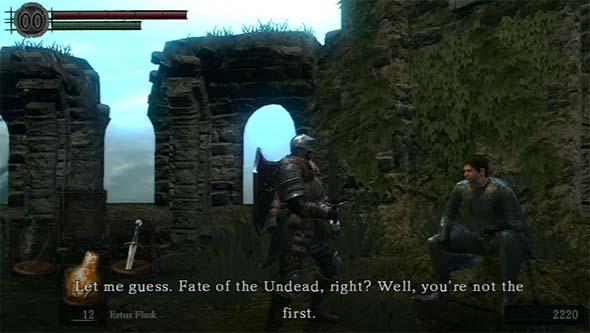
The Crestfallen Warrior informs us that we are not the first "chosen undead",
and suspects that we won't be the last either.
Avoiding hollowness with purpose
Many undead adventurers wandered into Lordran (or were abducted and taken there), and they struggle to hold onto their precious humanity for as long as possible, fighting for their lives in the fear that they, too will go hollow. Some, like the Crestfallen Warrior, resign themselves to the inevitability of hollowness, and find a sense of purpose in warning other new arrivals that they, too, are doomed. Others pursue some seemingly impossible goal or objective in the hopes that the journey will provide them with the sense of purpose necessary to avoid (or at least delay) hollowing. And yet others have taken up crafts or vocations such as blacksmithing, vending, or guarding something in order to keep them focused and avoid hollowing (and to exchange goods or services for the very souls that they need to stave off the hollowing). Keeping such a goal may help keep an undead partially lucid, but they also seem to begin to forget everything else, and only the knowledge of their quest or craft remains. Perhaps, the undead guarding various areas of the game were, at one point, tasked with protecting that place (or something within that place), but have long since lost their mind, and only that compulsion to defend has remained.
Going on "one final quest" seems to provide adventurers with enough focus to hold back hollowing.
But hollowing isn't just a thematic element reserved for non-player characters; hollowing is also a mechanic in the game that affects the player. Whenever the player character dies, you are reborn at the last bonfire in a hollowed state, unable to summon help from allies until you restore your humanity through the consumption of someone else's humanity. In Dark Souls II, hollowing further handicaps the player by cummulatively reducing your total health each time you die, and only restoring your humanity can refill your health meter. In both these cases, the player is not truly hollow; you are only in a state of partial hollowing.
It's unclear whether non-player characters are able to die and restore their humanity, or if deaths contribute to an irreversible progression towards hollowness. There are, after all, apparently hollowed NPCs such as the undead merchant in the Undead Burg and blacksmith Lenigrast in Majula who are sane enough to have kept their shops open. The presence of NPC summon signs hints at the possibility that they, too, are capable of restoring their own humanity through the same mechanisms that you can, but the game itself justifies this with ambiguous appeals to "time distortion" and hypothetical parallel realities that obfuscates the matter - particularly where Solaire and Lautrec are concerned.
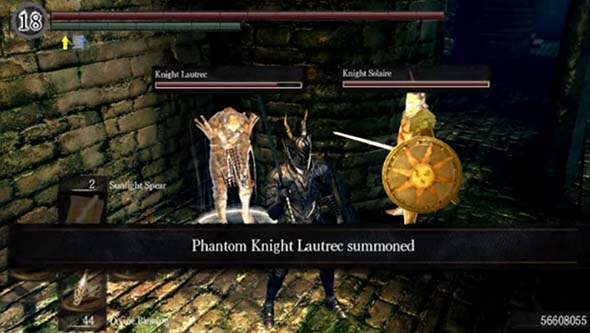
Summoned NPCs may recover humanity as you do, or they're from another time or dimension, or both.
Solaire's dialogue refers to "heroes centuries old phasing in and out.". Solaire may be using the words "world" and "time" interchangeably. This seems to be the game's justification for how summoning works: you may be literally summoning someone from a bygone era into your own time period. Anytime, you are summoned to someone else's world, you are also being transported to another time (past or future, depending on whether or not you finish the game). Solaire and Lautrec seem to somehow come from another time or dimension, but other characters definitely seem to exist within your world and time: Andre, the Crestfallen Warrior, Rhea and her companions, Big Hat Logan and his apprentice, and so on are all undead who have seen many other "Chosen Undead" come to Lordran seeking their destiny.
In any case, it's not until an undead "gives up" that the hollowing process becomes complete. What do we mean by "giving up"? For an NPC, it means that they gave up on life and went hollow, and the player typically ends up putting them down. For the player, it means that you stop playing the game. As long as you continue to play the game, then your character will continue to hold onto a sliver of humanity and maintain his or her sanity for a little while longer. When you put down your controller for the last time, you have condemned your character avatar to finally succumbing to hollowness, whether you recognize it or not... [More]
ce0263eb-66fa-4c8b-b624-2655b7809cd6|3|4.7
Tags:Dark Souls, Dark Souls II, Scholar of the First Sin, Demon's Souls, From Software, undead, Lordran, Drangleic, hollow, hollowing, humanity, souls, zombie, Solaire, Lautrec, Blacksmith Lenigrast, Crestfallen Warrior, Andre of Astora, Rhea of Thorolund, Seigmeyer of Catarina, Big Hat Logan, Gwyn, Sunlight Maggot, God of War, covenant, Warrior of Sunlight, Gravelord Servant, vagrant, perma-death, NPC, lore, Dragon's Dogma, pawn, online, multiplayer, PSN, XBox Live, Steam, emergent narrative
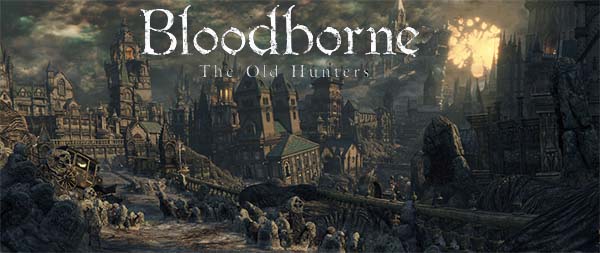
The DLC level for Bloodborne is considerably easier to access than the DLC of the first Dark Souls. You only have to beat a mid-game boss, and the items that you need to access the DLC are literally just handed to you next time you visit the Hunter's Dream. Unfortunately, if you don't read the pop-up text that tells you where to go to access the DLC level, then you might be in trouble, as there's no other indication in the game of where to go. Not even in the item description of the trinket that grants access. In typical FROMSoft fashion, accessing the DLC is fairly obscure and un-intuitive. In fact, it's even more obscure than Dark Souls because it isn't something that the player is likely to accidentally stumble upon. It requires players to do something that they might actively avoid attempting to do because it's something that probably got them killed in the base game. Granted, there is one other situation in the base game in which you are teleported to an optional location by this same method, so it's not entirely unprecedented, but it still feels contrived. Look FROMSoft, if you have to explicitly tell the player where to go in a text prompt, rather than allowing the player to infer it based on textual or environmental clues, that's probably a sign that you made it too esoteric...
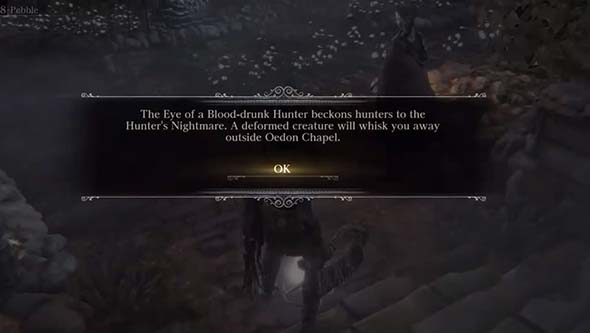
The DLC doesn't require players to jump through as many hoops as Artorias of the Abyss required,
but the actual entry-point into the DLC is even more obscure and counter-intuitive.
Once you're in the DLC's "Hunter's Nightmare" area, you'll be provided with a seemingly much more technical challenge than Dark Souls' Artorias of the Abyss DLC. While Artorias DLC threw a lot of magic-casting enemies at me that required me to cheese my way through the levels by using ranged weapons or mob-baiting tactics to cut down enemies one-by-one while staying out of range of the casters, Bloodborne's The Old Hunters DLC instead pits me in more one-on-one battles with fellow hunters that require more careful technique in order to vanquish. In fact, these encounters kind of subvert one of the common criticisms of the Souls games, which is that enemies are too easy to bait, and fighting one-on-one trivializes most fights. The mob monsters in the Hunter's Nightmare actually back away from you as if they're scared, and the other hunter enemies will actually kill those monsters for you, setting the stage for these one-on-one fights. I hope you've been practicing parrying, visceral attacks, and dashing towards enemies in the base game, because this DLC will test those skills. They aren't as obscenely difficult as the NPC hunters that you can find in the chapel of the Unseen Village or in the courtyard on the side of the Grand Cathedral (opposite the path to the Forbidden Woods), but they can easily destroy you if you overreach or get arrogant.
Or at least, most of the hunters aren't that difficult. There are a few notable hunters that posed quite a challenge. One pair of hostile church agents caused me quite a bit of trouble with the camera and target lock, since one was a ranged spell-caster, and the other was an in-your-face swordsman. These issues were exacerbated by the presence of environmental decorations that kept getting between my character and the camera, and thus blocking my view of the action. It always annoys me when game designers put challenges in the game that the mechanics are ill-equipped to deal with. It's something that Bloodborne and the Souls games rarely fell victim to (other than the occasional tight-roping and platforming), so it's really noticeable when it does happen.
This wheelchair enemy would sometimes wind up on the moving stairs and turn invisible.
There was also a recurring glitch ... [More]
4e2bcc7f-ea9e-450f-a108-f054dad07aa4|1|5.0
Tags:Bloodborne, the Old Hunters, From Software, PS4, Sony, PSN, DLC, expansion, hunters, insight, Yharnam, whirligig saw, gatling gun, weapon, league, covenant, co-op, H.P. Lovecraft
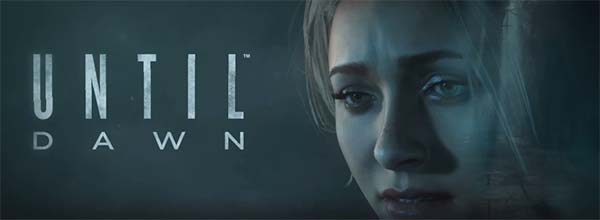
Here is a game that somehow managed to slip under the radar for me. As a snob for strong narrative-based games, I was surprised that a project like Until Dawn managed to escape my attention until a couple weeks prior to its release. Once I heard about it though, I was immediately intrigued. I knew it wasn't going to be a proper survival horror game, but it looked to have a lot of potential to move the horror genre (and gaming in general) in interesting directions. I was doubly surprised when I went to go by the game a couple days after its release so that I could play it over the weekend, only for it to be sold out in the two stores that I went to. It's the first time in about ten years that I've had trouble finding a game on store shelves within a week of its release, but I doubt that I'll have to break my long-standing boycott for pre-orders. So I had to resort to ordering it off of Amazon Prime with 2-day delivery and play it the next weekend.
Suspend your disbelief - and your common sense
Don't be fooled into thinking that Until Dawn is something other than what it is. It is an interactive movie with branching story. It is not an open-ended survival game! Anyone familiar with Heavy Rain or the Telltale Games will have a good idea of how the game will play out. The things you do and the actions and dialogue available are very tightly scripted. You won't be making decisions on how the group splits up, who goes where, or even what any individual character might be doing at any given time. Large chunks of the game are just dialogue and cutscenes, stopping you every now and then to let you make one of two choices, or showing a button prompt on screen to keep the action going (and sometimes keep the character alive). There are even some action sequences that could have been playable, but which are strictly non-interactive cutscenes.
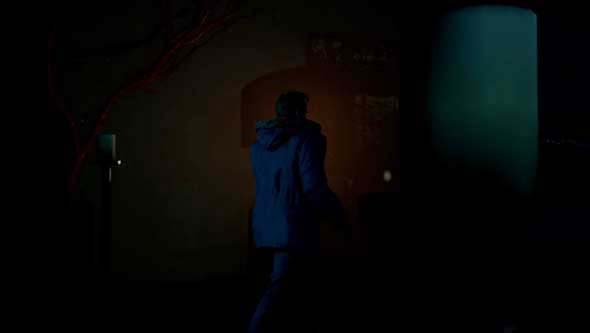
How about lighting some friggin' candles instead of groping around in the dark?
The only time that the game opens up more is when you must explore rooms for clues or evidence. In these cases, you have complete control of character movement and can walk around mostly freely. But interactions are severely limited. You can only interact with the select few objects that the developers intended for you to interact with.
These limitations can be very frustrating because the game doesn't let you do some obvious, common sense things. Upon entering the lodge, I'd like to have been able to light the candles instead of having to wander around in the dark for the next few chapters. Later, when investigating something crashing through a window, I'd like to have been able to take the rifle I just found on the wall. And even later, after the rifle didn't have enough bullets to shoot the murderer, it would be nice to have been able to open up the revolver I just found to make sure that it's loaded and find out how many bullets are in the chamber. And the list of dumb oversights goes on...
Common sense precautions like taking a melee weapon or checking that your new gun is loaded are not possible.
These limitations are further exacerbated by the esoteric nature of some of the decisions. Since all decision are binary (usually consisting of a "helpful" / "safe" option or an "antagonistic" / "risky" option), it's often unclear exactly what the character will do, and the outcome often plays out in a non-interactive cutscene. The character may not say or do exactly what the option described, which might lead the player to think "that's not what I meant to do / say!", and sometimes a decision might railroad you into following through in a way that you don't want to.
Granted, the options need to be somewhat vague, and the consequences shouldn't be obvious. That would make the game too easy and dull. The game has to utilize some of the classic horror movie tropes in order for the narrative to work. After all, the characters don't have the foresight to know that they're in a horror movie game. I accept that there needs to be limitations on the precautions that the player can take, but the player also needs to feel like they have more agency. [More]
1eebd3c1-dc0a-4bc2-9d50-ae593ac587ec|4|2.8
Tags:Until Dawn, Supermassive Games, PlayStation, PS4, PSN, Sony, exclusive, horror, cabin, slasher, saw, consequences, narrative, drama, pre-order, Hayden Panettiere, Peter Stormare, Brett Dalton, Rami Malek, Galadriel Stineman, Noah Fleiss, Jordan Fisher, Nichole Bloom, Meaghan Martin, Ella Lentini
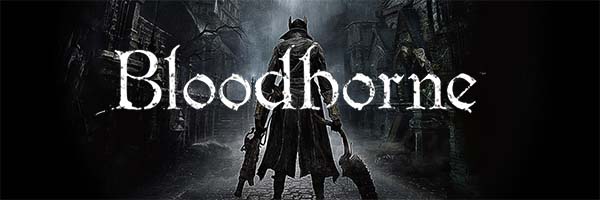
I am absolutely loving Bloodborne! But now that I've already thrown heaps of praise at it in my review, I thought I'd take a bit of time to provide some constructive criticism. As much as I love the game, it does still have flaws and annoyances. With the load screen complaints being addressed via a patch that made them shorter and gave players something to read, there aren't many major flaws left in the game. Most of what remains are fairly nitpicky and trivial, and none of them are game-breaking by any stretch.
This post may contain explicit complaints and suggestions about mid and late-game levels, story, bosses, and items that could be considered spoilers if you haven't played that far into the game. Consider yourself warned...
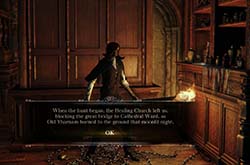
It would make sense for reading
lore documents to provide insight.
Before I get into suggestions for fixing things that I see as gameplay flaws, my first suggestion is going to be more of a thematic suggestion.
I think that reading the various lore notes scattered throughout the game should provide insight to the character. This provides incentive to read the documents (even on repeat playthroughs), and rewards players who actively explore the game's lore.
It also makes sense within the internal context of the game world, since reading the document does provide the character with insight into the world and its history. The character (in addition to the player) is learning something about the world, and so that should be mechanically enforced with the receipt of insight. In fact, I would even propose that reading the notes could even provide two insight.
If this suggestion were to be implemented, then I can definitely see a need to relocate the first lore documents ... [More]
634b483b-9d63-4813-8bef-118d49b426a3|0|.0
Tags:Bloodborne, wishlist, From Software, Sony Computer Entertainment, PlayStation, PS4, PSN, trophies, insight, lore, blood vials, bullet, gun, NPC, co-op, blood-starved beast, artificial intelligence
|

| 12 | | | | | | | 60 | | 11 | | | | | | | 55 | | 10 | | | | | | | 50 | | 09 | | | | | | | 45 | | 08 | | | | | | | 40 | | 07 | | | | | | | 35 | | 06 | | | | | | | 30 | | 05 | | | | | | | 25 | | 04 | | | | | | | 20 | | 03 | | | | | | | 15 | | 02 | | | | | | | 10 | | 01 | | | | | | | 05 |
|